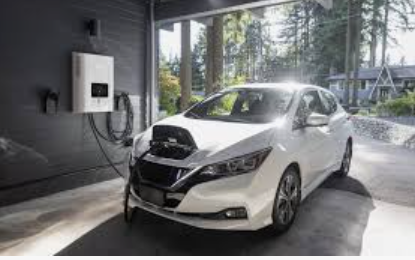
China-made electric vehicles will make up more than a quarter of the EV sales in Europe this year, with the country’s share increasing by over 5 per cent from a year earlier, according to a new policy analysis.
CNBC reported that about 19.5 per cent of battery-powered EVs sold in the EU last year were from China.
This is close to a third of the sales in France and Spain constituting EVs shipped from the Asian country, the European Federation for Transport and Environment reported in a paper shared Wednesday.
The share of made-in-China vehicles in the region is expected to rise to just over 25 per cent in 2024, according to T&E research, as Chinese brands such as BYD ramp up their global expansion.
About 19.5 per cent of battery-powered EVs sold in the EU last year were from China, with close to a third of the sales in France and Spain constituting EVs shipped from the Asian country, the European Federation for Transport and Environment (T&E) reported in a paper shared Wednesday.
The share of made-in-China vehicles in the region is expected to rise to just over 25 per cent in 2024, according to T&E research, as Chinese brands such as BYD ramp up their global expansion.
While most EVs sold in the EU are from Western brands such as Tesla, which manufactures and ships EVs from China, Chinese brands alone are set to account for 11 per cent of the region’s market in 2024. That share could reach 20 per cent by 2027, T&E predicted.
The findings come as the European Commission probes subsidies given to electric vehicle makers in China to determine if they unfairly undercut local companies. Non-Chinese brands that ship from China, such as Tesla and BMW, could be included in the ongoing subsidy investigation.
According to the founder of Sino Auto Insights, Tu Le, incentives put in place in China in the early 2010s led to a surge in startups and increased battery cell capacity in the country, paving the way for affordable EVs.
However, the policy group said this would also require Europe to become more self-sufficient in battery cell production for the domestic EV industry.
“The conundrum they see themselves in is that they can’t build affordable (and profitable) EVs without Chinese batteries because the Chinese are so far ahead of both the EU & US on the mineral mining, refining and manufacturing sides,” said Le.
In response to policy risks associated with shipping made-in-China EVs to Europe, China-based manufacturers such as Tesla and BYD have ramped up manufacturing efforts in the continent.
Tesla is seeking to expand its assembly plant in Germany, while BYD plans to build a factory in Hungary.
“The aim of tariffs should be to localise EV supply chains in Europe while accelerating the EV push, in order to bring the full economic and climate benefits of the transition,” T&E said in their report.

